I heard my first Christmas song on the radio on Friday, and you know what means: the absolute hell of seasonal shopping. But Barnes and Noble is making it easier for movie lovers, by holding its twice-annual 50% off sale on DVDs and Blu-rays from the Criterion Collection, the Bentley of distributors. I hesitate to call this a “gift guide,” as it’s (almost) too good to waste on Aunt Sally or cousin Jane–scoop up a few for yourself, and indulge your inner auteur.
But you’ll have to act fast, as the sale ends today, Nov. 22. To help with your quick decision-making, here’s a rundown on some recent Criterions, listing special features and a few thoughts on each title (the video and audio are exemplary on all, and the aspect ratios are as intended, so buy with confidence regarding those factors). Missed the sale? Not to worry; it’ll be back next June or July, so bookmark this list for safekeeping and remember that my birthday is in summer, hint hint.
Merry fucking Christmas. I’d love to see the look on grandma’s face when she pops this one into the player, what with its dead kid, genital mutilations, and talking fox (let’s not forgot the talking fox). If she’s got a bum ticker and you need to collect on an inheritance early, Antichrist is the movie for you.
But seriously, Antichrist is, as I put it last fall, a hell of a movie, one of my Top 10 of 2009, and a great Criterion package.
You Get: A high-definition digital master, approved by director Lars von Trier and supervised by director of photography Anthony Dod Mantle (with DTS-HD Master Audio soundtrack on the Blu-ray edition); audio commentary featuring von Trier and film scholar Murray Smith; video interviews with von Trier and stars Willem Dafoe and Charlotte Gainsbourg; seven video pieces about the production through interviews with von Trier and key members of his filmmaking team, as well as behind-the-scenes footage; “Chaos Reigns at the Cannes Film Festival,” a documentary on the film’s world premiere, along with press interviews with Dafoe and Gainsbourg; and theatrical trailers. Ian Christie does the booklet honors.
Gift Recommendation: For horror fans, absolutely, but check first where they draw the line. If the 1925 Phantom of the Opera activates their fear factor, reconsider.
The Antichrist of comics creators documentaries, this warts-and-not-much-else portrait of Robert Crumb and his disturbed, disturbing brothers has become as much as a cult hit as the artist’s “Fritz the Cat” or “Mr. Natural,” receiving two prior DVD releases that have been superseded by this double-barreled DVD and Blu-ray issue. If you thought this movie was tough on Crumb, who greets each personal and professional setback with a wheezy, nervous half-giggle, and his siblings (think Grey Gardens without the old money and outre couture), consider how hard it was on director Terry Zwigoff, who spent nine years in a near suicidal funk to complete it.
You Get: A restored high-definition digital transfer, approved by Zwigoff (with uncompressed monaural soundtrack on the Blu-ray edition); two audio commentaries, a new one with Zwigoff and one with him and Roger Ebert from the 2006 special edition; more than 50 minutes of unused footage; and a stills gallery. Crumbians will especially appreciate the booklet, which besides a fine essay by Jonathan Rosenbaum includes artwork by Charles, Jesse, Maxon, and Robert Crumb.
Gift Recommendation: A film about, say, just-retired Cathy scribe Cathy Guisewite might very well be an easier sit, but the path to creation for Crumb (and his documentarian) is a rockier and perhaps more illuminating one for would-be cartoonists staring into their pens and brushes.
I’d previously seen a number of the films considered this time before they hit disc, and meant to see the Golden Globe-nominated Everlasting Moments. I’m glad I waited for Criterion to catch me up. Set in the early 1900s it’s based on the true story of Maria Larsson, a woman of humble means who, despite a difficult marriage to an alcoholic and other indignities, was empowered to become a great photographer when she won a camera in a lottery. Stunningly shot to look like old photographs, the movie brings a vanished age to life. It also brings into focus the career of 79-year-old Swedish filmmaker Jan Troell, a two-time Oscar nominee (for 1971’s The Emigrants) whose films since the early 80s have been spottily distributed here.
You Get: A Troell-approved digital transfer; the short documentary “Troell Behind the Camera”; “The True Story of Maria Larsson,” a collection of her photographs, narrated by writer Agneta UlfsÁ¤ter-Troell; “Troell’s Magic Mirror,” an hour-long documentary on the director’s career; and its trailer. Plus a booklet essay by Armond White, always better company when writing up a favorite film. (“By rediscovering the importance of the photographic image, Troell reminds us of the significance of cinema itself.”)
Gift Recommendation: Certainly for foreign film fans, but photography buffs will find much to admire to. 007 watchers will enjoy Jesper Christensen, the mysterious “Mr. White” in the Daniel Craig entries, in a meaty role.
There is strange, and there is House. The story goes that Nobuhiko Obayashi, the director of this fast-emerging (if late-arriving) cult sensation from Japan, was approached by Toho Studios to make a movie like Jaws. Using a very loose storyline concocted by his 11-year-old daughter, Chigumi, he did not. The odyssey of seven schoolgirls consumed by a house that is definitely not a home is like a lost, acid-trip episode of Pee-wee’s Playhouse, where the host and his friends have been offed and replaced by hostile pianos, lamps, and mattresses. One of those movies better experienced than explained; I barely attempted to peel back its wacky layers.
You Get: “Constructing a House,” a video piece featuring interviews with Nobuhiko and Chigumi Obayashi, and screenwriter Chiho Katsura; 1966’s Emotion, one of Obayashi’s experimental films; and a video appreciation by director Ti West (of the more conservative The House of the Devil) and its trailer. Chuck Stephens does the essay honors this time, with an excellent appreciation of this “eye-poppingly demented, jaw-droppingly inventive” whatsit.
Gift Recommendation: A brain-fryer good for off-the-wall Halloween celebrations. Buy now, let it ferment for a year, then shock guests.
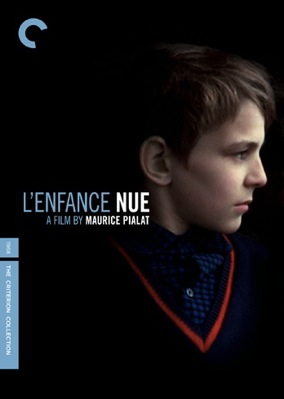 DVD (1968)
DVD (1968)
The title of Maurice Pialat’s debut film translates as Naked Childhood. And so it is, as one of France’s most uncompromising filmmakers, best-known for envelope pushers like Loulou (1980) and A nos amours (1983), observes the life of a rebellious ten-year-old foster child. It’s an eye-level assessment, discomfiting and unsentimental.
You Get: “L’amour existe,” Pialat’s 1960 short about life on the outskirts of Paris; “Autour de L’enfance nue,” a 50-minute documentary shot just after the film’s release; excerpts from a 1973 French television interview with Pialat; a visual essay by Kent Jones on the film and Pialat’s cinematic style; and a video interview with Pialat collaborators Arlette Langmann and Patrick Grandperret. Phillip Lopate is the essayist.
Gift Recommendation: Lopate calls it: “He could not bring himself to believe in the redemptive promise of enlightened values or love, and he seemed bravely impervious to the delusion of comfort.” Not everyone’s cup of tea but arthouse devotees will hope that the release of this little-seen first feature will mean more Pialat via Criterion.
Ingmar Bergman and Michelangelo Antonioni (see Red Desert, below) died July 30, 2007, a black day for film lovers. For some reason Bergman’s reputation seems to be slipping–too difficult? Too self-conscious? No 3D remakes planned? Whatever the cause it’s not Criterion’s fault, which has put out sterling packages of Bergman films since the laserdisc era. The latest is a so-called “lesser” work, but one that’s perhaps easier to digest, given its elements of the supernatural. Bergman was fond of magic, and of a G.K. Chesterton play called Magic, and this is somewhat of an adaptation, with the great Max von Sydow (at age 81 still working as if it were 1958, an inspiration to us all) as a traveling magician confronting the powers-that-be at the latest stop on his troupe’s itinerary. A shot across the bow at some of Bergman’s critics, then and very possibly now, that pulls a few rabbits out of its hat in an atmosphere thick with Gothic gloom.
You Get: A restored high-definition digital transfer (with uncompressed monaural soundtrack on the Blu-ray edition; a visual essay by Bergman scholar Peter Cowie; a brief 1967 video interview with Bergman about the film; an English-language audio interview with Bergman conducted by filmmakers Olivier Assayas (Summer Hours) and Stig BjÁ¶rkman in 1990. The booklet featuring excerpts from a 1990 tribute to the film by Assayas (now in theaters, and on my DVR, with the acclaimed Carlos), a new essay by critic Geoff Andrew, and an excerpt from Bergman’s autobiography Images: My Life in Film.
Gift Recommendation: Bergmaniacs, and they/we are legion, will want to snap this up. Anyway don’t you love the cover?
Hot on the heels of its superb grouping of Nagisa Oshima’s outlaw 60s films is this movie from his renegade 80s, perhaps his most widely seen (if not most notorious) film at that time. I saw it twice in college, and then it disappeared into the maw of international rights. In that time, the reputations of stars David Bowie and Ryuichi Sakamoto (playing a World War II POW and a camp commandant who share a mutual, and dangerous, fascination for one another) have only grown, and co-star Takeshi Kitano (a scene-stealing supporting part in his first dramatic role) has emerged as a major cult figure. And it’s still a compelling odd duck, a standard-seeming POW picture turned on its ear by Oshima’s idiosyncrasies.
You Get: A restored high-definition master (with DTS-HD Master Audio soundtrack on the Blu-ray edition); “The Oshima Gang,” a 1983 making-of; new video interviews with producer Jeremy Thomas, screenwriter Paul Mayersberg, actor Tom Conti, and actor-composer Ryuichi Sakamoto; “Hasten Slowly,” an hour-long 1996 documentary about author Laurens van der Post, whose autobiographical novel the film was based on; and the trailer. Stephens again does the booklet honors, which also features reprinted interviews with Oshima and Kitano.
Gift Recommendation: Open-minded devotees of war pictures and Bowie will find it of interest; it may work better if you’re not tied to either and just go with it. Another welcome excavation.
“Far from Yokohama,” the first installment of Jim Jarmusch’s anthology on the allure of Memphis, is sublime. I’m not really knocking the rest of it, but to know teens Mitsuko (Youki Kudoh) and Jun (Masatoshi Nagase) as they tour the city is to love them, and you don’t want to part with them. You do see them again, but the rest is spent in the uneven company of Joe Strummer, Steve Buscemi, and Screamin’ Jay Hawkins, among others–likably shaggy yet lacking the same emotional pull. Robby MÁ¼ller’s bright color cinematography, a first for a Jarmusch feature, and John Lurie’s score are steadier assets.
You Get: A restored high-definition digital transfer, supervised and approved by Jarmusch (with uncompressed monaural soundtrack on the Blu-ray edition); a Q&A with Jarmusch in which he responds to questions sent in by fans; excerpts from the 2001 documentary Screamin’ Jay Hawkins: I Put a Spell on Me; an original documentary on the film’s locations and the social and musical history of Memphis; and on-set photos by Masayoshi Sukita and behind-the-scenes photos. Dennis Lim and Elvis biographer Peter Guralnick supply booklet essays.
Gift Recommendation: “Far from Yokohama” is for everybody; the rest, more for hipsters.
Criterion had The Night of the Hunter on laserdisc. I had only heard about it, and bought it blind. I was knocked out. Does anyone come away from Charles Laughton’s first and last film as director, an overwhelming one-off, unaffected? There’s so much here: A lyrical sense of time and place (Depression-era West Virginia) abundant with Expressionist terrors; the bedrock authority and goodness that the legendary Lillian Gish brings to her key role, as if the entire history of cinema was gathering the story’s lost children in its arms; and of course the outrageous menace of Robert Mitchum’s fraudulent preacher, with “love” and “hate” tattooed on his fingers, a great performance. And Shelley Winters, too, as his duped prey. That last shot of her…mesmerizing.
You Get: Someone at Criterion loves The Night of the Hunter and has done right by it. On the first disc, audio commentary featuring second-unit director Terry Sanders, critic F.X. Feeney, archivist Robert Gitt, and author Preston Neal Jones; a new documentary featuring interviews with producer Paul Gregory, Sanders, Feeney, Jones, and author Jeffrey Couchman; a new video Interview with Laughton biographer Simon Callow; a clip from The Ed Sullivan Show in which cast members perform a scene deleted from the film; a 15-minute archival documentary about the film, featuring Mitchum; an archival Interview with cinematographer Stanley Cortez; a gallery of sketches by Davis Grubb, author of the source novel, and the original theatrical trailer. On the second disc, “Charles Laughton Directs The Night of the Hunter,” an incredible two-and-a-half-hour collection of outtakes and behind-the-scenes footage; and a new video conversation between Gitt and Leonard Maltin about “Charles Laughton Directs.” Booklet essays are by Terrence Rafferty and Michael Sragow.
Gift Recommendation: Staggering, and a strong contender for disc of the year. L-O-V-E.
With an A-list star (Kirk Douglas) in tow Stanley Kubrick moved into the big leagues without compromising his singular vision. As the First World War rages Douglas’ French colonel tries to extricate his men, who failed to complete a suicidal mission, from the firing squad. But the deck is stacked impossibly high as the war machine, personified by two generals (played to the hilt by a barely contained George Macready and the dapper Adolphe Menjou), demands that sacrifice restore honor. One of the great films on the folly of war, swift and merciless, and allowing other great character turns, notably Timothy Carey as a “social undesirable” marked for execution.
You Get: A restored high-definition digital transfer (with uncompressed monaural soundtrack on the Blu-ray edition); a new audio commentary featuring Gary Giddins; excerpt from a 1966 audio interview with director Stanley Kubrick; a TV interview from 1979 with Douglas; new video interviews with Kubrick’s longtime executive producer Jan Harlan, Paths of Glory producer James B. Harris, and actress Christiane Kubrick; a French TV piece about a real-life World War I execution that partly inspired the film; and the trailer. James Naremore contributes the booklet essay.
Gift Recommendation: Another Criterion LD gets an upgrade in the digital era. A classic that few dispute and the kind of movie that smartens any DVD shelf.
One of those movies that make me want to break down and buy a Blu-ray player. I’ve read that the image is actually a little strident on Blu, but Michelangelo Antonioni, having left an indelible mark in black and white in his earlier films, wanted to redefine color composition for his debut there, and DP Carlo Di Palma attacked the palette. The sick soul of protagonist Monica Vitti, as the disaffected wife of a plant director, is mirrored by the polluted world around her, a prison of electric pylons, eerie ships, and dead little towns. The possibility of an affair with a co-worker (Richard Harris, not quite fitting in with the rest) offers a slight respite–but don’t expect any green sentiment or easy answers in a spectacle of remoteness.
You Get: A restored high-definition digital transfer (with uncompressed monaural soundtrack on the Blu-ray edition); audio commentary by Italian film scholar David Forgacs; archival interviews with director Antonioni and Vitti; two short documentaries by Antonioni, Gente del Po, about a barge trip down the Po River, and N.U., about urban street cleaners; dailies from the original production; and the trailer. The booklet features an essay by film writer Mark Le Fanu, a reprinted interview with Antonioni conducted by Jean-Luc Godard, and writings by Antonioni on Gente del Po and N.U.
Gift Recommendation: Arthouse with a capital “A,” for those who worship at the altar of Cinema (capital C). Worth seeing once as the director decamped from Ravenna to London for the next big leap of 1966’s Blowup.
The Tunisian writer/director Abdellatif Kechiche is an award-winning talent in Europe, and this is an engrossing family saga. Out of a job an immigrant defies French red tape and his own extended family to convert a creaky boat into a ship-shape couscous restaurant serving the specialties prepared by his ex-wife. Much as I hate to resort to cuisine clichÁ©s I can say it’s flavorful.
You Get: A high-definition digital master, approved by Kechiche (with DTS-HD Master Audio soundtrack on the Blu-ray edition); a new video interview with Kechiche; Sueur, Kechiche’s extended reedit of the climactic belly-dancing sequence, featuring a new video introduction by the director; a new video interview with film scholar Ludovic Cortade; an excerpt from a 20 heures television interview with Kechiche and actress Hafsia Herzi; video interviews with Herzi, actress BouraouÁ¯a Marzouk, and the film’s musicians; and the trailer. Wesley Morris wrote the booklet essay.
Gift Recommendation: There must be people who collect CÁ©sar Award winners with the same fervor that some collect Oscar winners, and this is one likely to appeal to both camps with bonus crossover appeal to foodies.
While critics raved audiences were befuddled by Malick’s first film since 1978’s Days of Heaven. What happened to the core of the book, filmed less ostentatiously in 1964? What were George Clooney and John Travolta and others doing in such tiny roles? It’s a World War II picture that came out the same year Saving Private Ryan redefined the genre, but all those shots of bugs and grass in this one may be a little too much in the way of redefinition.
Though it may be heretical to say so I’m not entirely onboard either. But I will say that this extras-heaped edition, which must look overpowering in Blu-ray, does a lot to explain Malick’s guts-and-poetry approach to what might have been a standard adaptation, addressing all aspects of its unique production over many years. Though akin to Cornel Wilde’s Beach Red (1967) in some ways (basic setting, voiceover, concerns other than hardware and explosions) it goes its own way, defying expectations. It would make an interesting double feature with the similarly off-the-beaten-track Merry Christmas Mr. Lawrence.
You Get: Plenty. A restored high-definition digital transfer, supervised and approved by director Terrence Malick and cinematographer John Toll (with DTS-HD Master Audio soundtrack on the Blu-ray edition); a new audio commentary by Toll, production designer Jack Fisk, and producer Grant Hill; interviews with several of the film’s actors, including Kirk Acevedo, Jim Caviezel, Thomas Jane, Elias Koteas, Dash Mihok, and Sean Penn; composer Hans Zimmer; editors Billy Weber, Leslie Jones, and Saar Klein; and writer James Jones’s daughter Kaylie Jones; a new interview with casting director Dianne Crittenden, featuring archival audition footage; 14 minutes of outtakes from the film; World War II newsreels from Guadalcanal and the Solomon Islands; Melanesian chants; and the trailer. The booklet has an essay by David Sterritt and a 1963 reprint by James Jones.
Gift Recommendation: The Malick faithful already bought it, in both formats. (Worth it for another great cover.) Either way the film is a good choice for a “greatest generation” admirer looking for a different take on the war in the Pacific.

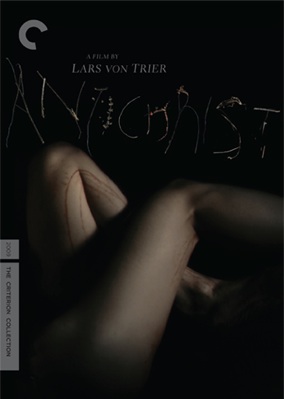
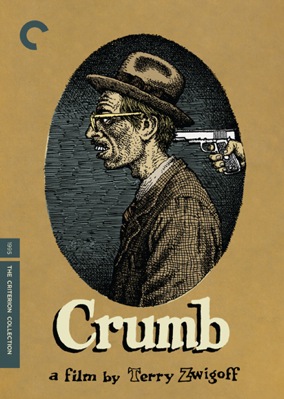
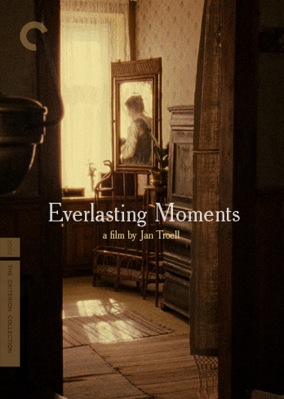
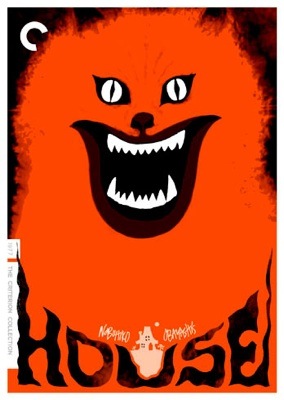
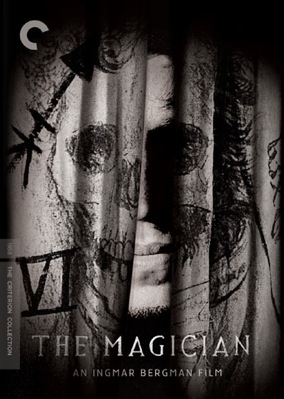
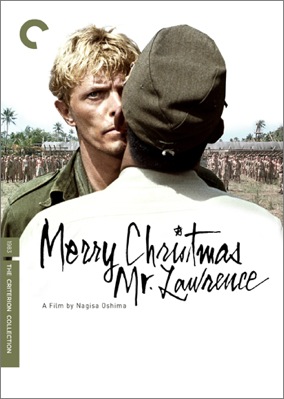
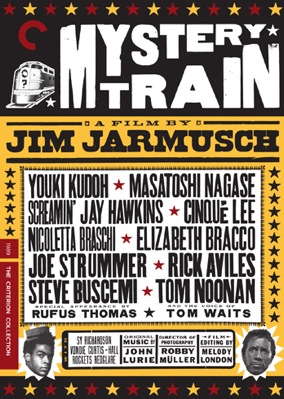
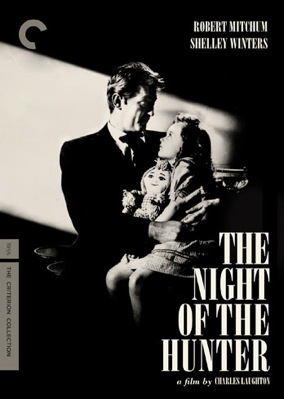

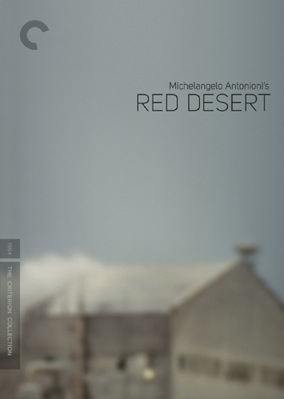
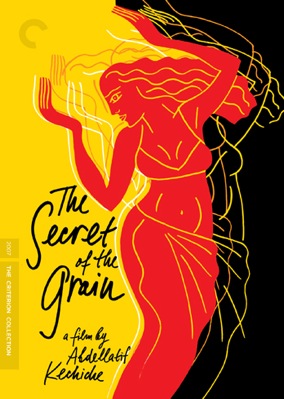
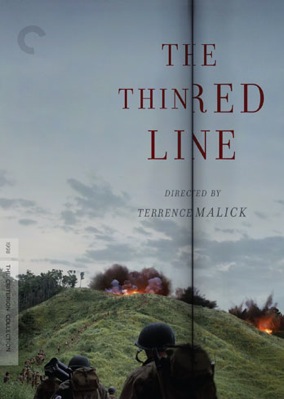



Comments